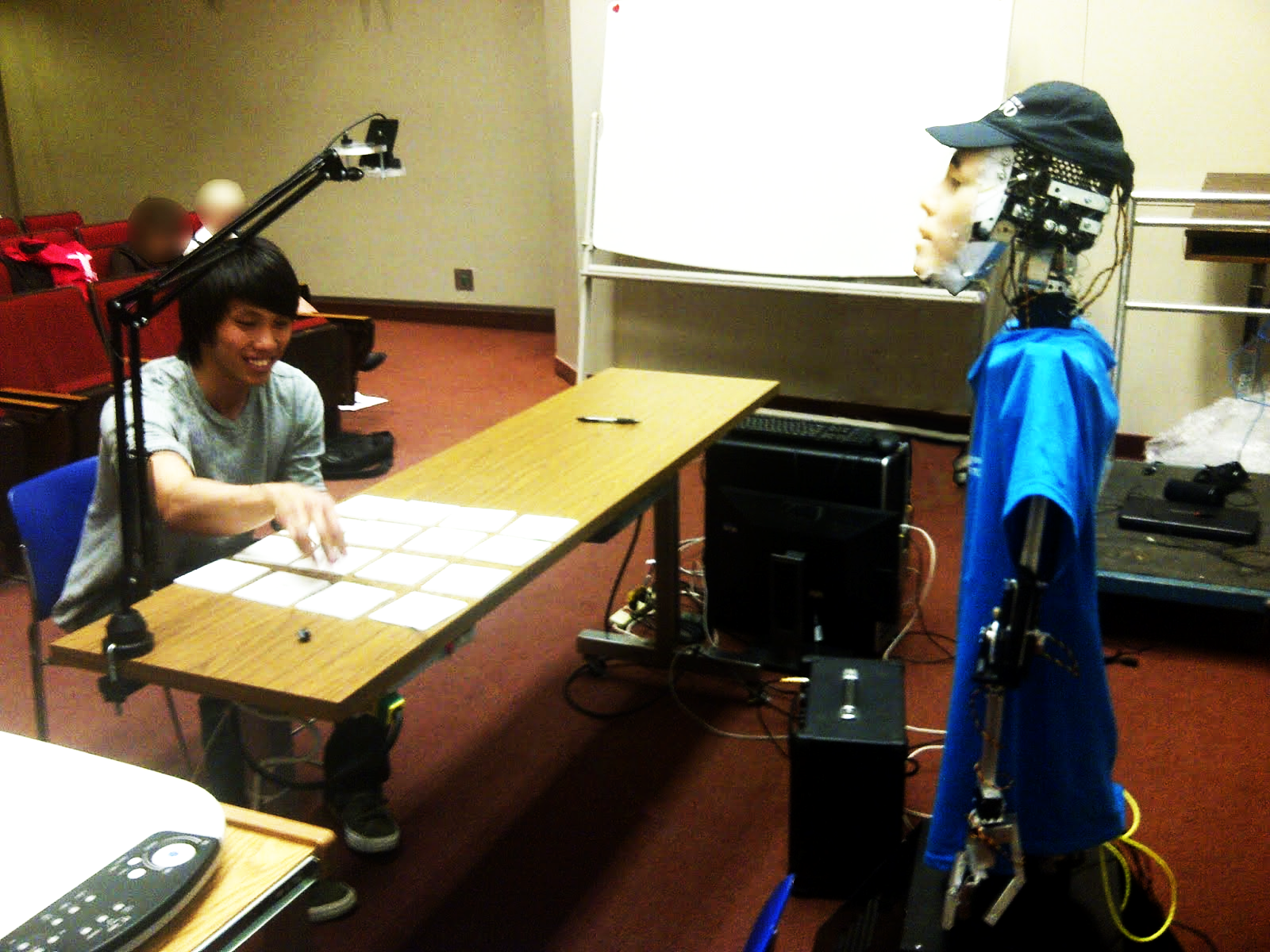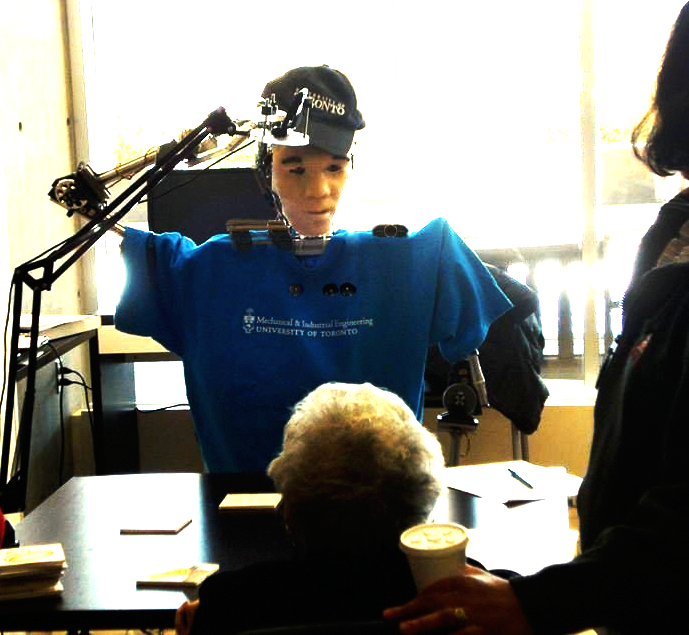University of Toronto |Faculty of Applied Science and Engineering |webmaster
All contents copyright © Autonomous Systems and Biomechatronics Lab.
Human-Robot Interaction
Human-robot interaction (HRI) addresses the design, understanding, and evaluation of robotic systems which are used by people or work alongside them. These robots interact through various forms of communication in different real-world environments. Namely, HRI encompasses both physical and social interactions with a robot in a broad range of applications, such as physical and cognitive rehabilitation, tele-operation for surgery, surveillance and others. Through understanding these interactions we can better design robots to suit the functional, ergonomic, aesthetic, and emotional requirements of different user. One user group especially of importance in our research is the elderly population.


The study of socially assistive robots interacting with elderly individuals is currently not well established and is complex as this is a demographic that may have minimal to no experience with robots and varying degrees of experience with technology. Our research aims to investigate this demographic group to study their acceptance of robotic technology as an assistive and social tool. Our aim is to study the interactions between elderly users, including those with dementia, and assistive and personal robots in environments such as hospitals and long-term care facilities during self-maintenance (i.e., eating, dressing and grooming) and enhanced (i.e., cognitively and socially stimulating leisure activities) activities of daily living.
Funding Sources: Natural Sciences and Engineering Research Council of Canada (NSERC), the Canada Research Chairs (CRC) Program, TVN - Technology Evaluation in the Elderly Network (which is supported by the Government of Canada through the Networks of Centres of Excellence (NCE)), Canadian Institutes of Health Research (CIHR), Canada Foundation of Innovation (CFI) and Ontario Research Fund (ORF).

